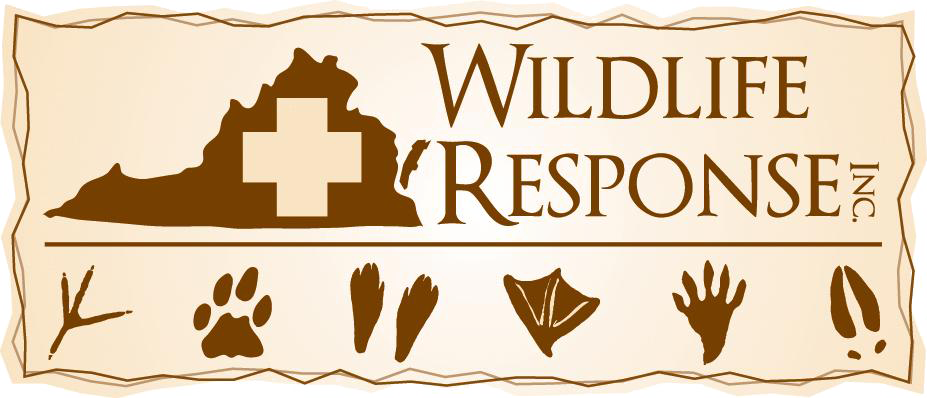| Bird is still flying
It is almost impossible to catch a flying bird. It may be caught if it is weak, has a fractured wing, or head injury. You may attempt to catch it by using a crab or fish net, towel, or sheet. Alternative nets can be made out of a pillowcase with wire coat hanger run through the hem of the case then bent into a circle. The “net” can then be attached to a broom handle with duct tape or string wrapped around the wire to the handle. Sick or injured birds may be caught by throwing a towel on top of it. You can then scoop the bird and towel together and placing both into a box.
Birds and squirrels trapped in a house
All birds (except owls) and squirrels will most always escape into the light. If you have a bird or squirrel in your home, please know that getting it out of your home is a simple procedure.
- Try to confine the bird or squirrel to one room. Shut the doors to the rest of the house or block open areas with sheets
- If it is injured, wait an hour for it to calm down. You can then attempt to catch it using a net or towel then place the bird or animal in a box, dog, or cat crate
- If it is uninjured turn off lights in room, open one window or door to the outside in the room the animal is contained and the bird or squirrel should escape
- Remember to keep pets and people out of room
- Remember- If the bird or squirrel is injured it should be captured and taken to a rehabilitator
Birds trapped in stores or warehouses
WRI receives calls from stores and warehouses about birds that become trapped in their facilities. It is sometimes very difficult to get a bird out of a warehouse - but the same basic principals apply as if it were in a home.
If the bird is a raptor, please call our Hotline (757.543.7000) for help.
Birds and mammals trapped in chimneys
Mammals and birds will occasionally be trapped in chimneys. You can try to use a rope placed in one of the corners of the chimney to help the animal climb out. In most cases, however, the animal will have to be allowed to get into the fireplace before it can be helped out of the home. Close the screen or glass in front of the fireplace. If nothing is in front of it, place a piece of plywood or hang a sheet in front of it. Open the flue and allow the animal into the fireplace. Use the instructions for “Birds and Squirrels Trapped in a House”.
If the animal is a raccoon, duck, or other large animal, please call our Hotline for help.
Bird attacking window
Birds usually attack windows for a few reasons:
They are territorial. Birds during pre-breeding and breeding season stake out “territories”, an area that the pair of birds will not allow others of their species to live. These birds may see their own reflection and mistake it for a rival bird. They will strike out at reflections in mirrors, windows, parked cars, etc. The way to correct this problem is to remove the reflection. In windows, this can be accomplished by closing curtains, placing paper on the outside of the window (as long as it’s not going to rain in the next few days), or applying window clings or frosting the window. Yellow Highlighter has also been proven to work. With cars, you should move the car for a few days or cover it with a car cover
.
They see a continuation of the trees and bushes near the window. Again, closing curtains, placing paper on the outside of the window (as long as it’s not going to rain in the next few days), or applying window clings or frosting, or marking the window with yellow highlighter will help break up the appearance of bushes and trees. Another helpful hint would be to remove some of the limbs and bushes near the window.
The bird is being chased. Birds being chased by predators, particularly hawks such as Coopers and Sharp Shinned hawks, will fly head long into a window. Occasionally, the hawk will follow behind the prey, and hit the same window. If the bird has hit a window, please pick it up and call our Hotline. They often have concussions or other injuries. Birds that hit windows should not be released until they receive medical attention.
Oiled or sticky material on wildlife
Please call our Hotline for help
Birds with eye problems
House finches and sparrows are sometimes seen with swollen eyes. These birds have a condition called conjunctivitis. The condition starts as draining, crusty eyes quickly incapacitates the bird by basically making it unable to see. This is a highly contagious disease to other sparrows and finches. Please contain the bird and call our Hotline (757.543.7000). You will need to transport the bird to a rehabilitator for care. Also, please do the following: take down your feeders, clean them with the following procedures:
- Take down feeder and throw remaining seed away in their trash can
- Clean up any seed that's on the ground
- Use a 1 part bleach to 30 parts water solution to clean the entire feeder
- Let the feeder air dry
- Use the remaining bleach solution on the ground under the feeder to help disinfect the area
- Repeat the cleaning every day for several weeks to minimize the spread of the disease
|
